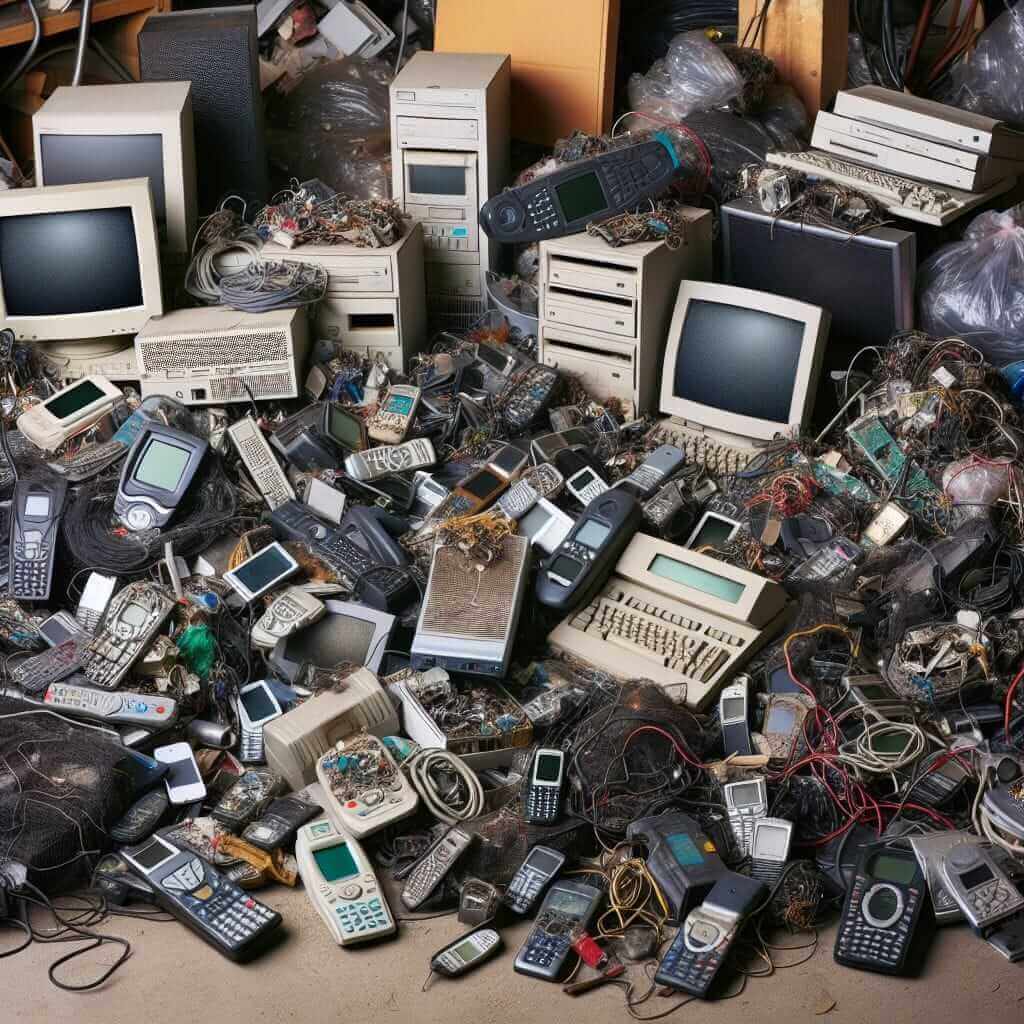The IELTS Reading section gauges a candidate’s ability to understand a wide range of texts. Topics often encompass current social, academic, and environmental issues, making subjects like electronic waste (e-waste) highly relevant. E-waste management has increasingly become a global challenge due to the rapid growth in the use of electronic devices. Given its significance, it’s plausible that “What are the challenges of managing electronic waste?” might become a focus in future IELTS examinations.
Main Content
IELTS Reading Practice Text (Medium)
What are the Challenges of Managing Electronic Waste?
Electronic waste, commonly referred to as e-waste, encompasses discarded electronic devices and equipment. The fast-paced advancements in technology have resulted in increased production and consumption, leading to substantial amounts of e-waste. The management of this waste poses multiple challenges that require immediate and strategic interventions.
Firstly, improper disposal methods are a significant concern. Many electronic products contain hazardous substances such as lead, mercury, and cadmium, which can seep into the soil and contaminate water supplies when dumped in regular landfills. This environmental pollution can result in detrimental health effects for nearby communities.
Secondly, the recycling process for e-waste is complex and costly. Unlike traditional waste, electronic devices are composed of various materials, including metals, plastics, and glass, which need to be separated and processed differently. The absence of efficient recycling technologies further exacerbates the issue, leading to low recycling rates and accumulation of waste.
 E-Waste Recycling Challenges
E-Waste Recycling Challenges
Thirdly, there is a lack of awareness and regulatory frameworks surrounding e-waste. In many countries, policies and regulations concerning e-waste management are either non-existent or poorly enforced. This absence of stringent laws perpetuates improper disposal practices, causing both environmental and health hazards.
Furthermore, the global disparity in e-waste management highlights another significant challenge. Developed countries often export e-waste to developing nations under the guise of recycling. However, these recipient countries often lack the infrastructure to handle such waste properly, leading to unsafe recycling methods that endanger workers and local ecosystems.
Lastly, the rapid obsolescence of electronic devices exacerbates the e-waste problem. Manufacturers frequently release new versions of gadgets, resulting in shorter product lifespans. Consumers are enticed to upgrade, leading to a cycle of excessive waste generation.
Managing e-waste is a multifaceted challenge that requires comprehensive strategies, including improved recycling technologies, stringent regulations, and global cooperation. Addressing these issues is crucial to mitigating the adverse environmental and health impacts of electronic waste.
Practice Questions
Multiple Choice
-
What is one of the main problems associated with improper disposal of e-waste?
a. High recycling costs
b. Environmental pollution
c. Inadequate regulatory frameworks
d. Rapid obsolescence of devices -
Which of the following is NOT a challenge in managing e-waste?
a. The presence of hazardous substances
b. The complexity and cost of recycling
c. Lack of consumer awareness
d. Low production of electronic devices -
How does the export of e-waste affect developing countries?
a. They benefit from advanced recycling technologies
b. They often struggle with improper handling of waste
c. They receive economic advantages
d. They have better regulatory frameworks
True/False/Not Given
- E-waste includes discarded electronic devices and batteries.
- Developing countries have effective recycling infrastructures for e-waste.
- The release of hazardous substances from e-waste can cause health risks.
Answer Key
Multiple Choice
-
b. Environmental pollution
- Impacts from improper disposal methods include contamination of soil and water.
-
d. Low production of electronic devices
- The rapid obsolescence and high production of electronic devices contribute to increased e-waste.
-
b. They often struggle with improper handling of waste
- Developing countries frequently lack the necessary infrastructure to manage e-waste properly.
True/False/Not Given
-
False
- The text specifically mentions discarded electronic devices but not batteries.
-
False
- The text highlights that many developing nations lack proper infrastructure for e-waste management.
-
True
- The text states that hazardous substances from e-waste can result in health effects.
Common Mistakes Students Make
- Misreading Information: Ensure that you understand the context and details provided to avoid mistakes in True/False/Not Given questions.
- Overlooking Keywords: Pay attention to keywords and phrases that are directly related to the questions.
- Neglecting Detail: Some answers require a comprehensive understand of the paragraph, not just skimming for answers.
Vocabulary
- Disposed (v.): /dɪˈspoʊzd/ – To get rid of something.
- Obsolescence (n.): /ˌɑːbsəˈlɛsns/ – The process of becoming obsolete or outdated.
- Hazardous (adj.): /ˈhæzərdəs/ – Risky; dangerous.
- Infrastructure (n.): /ˈɪnfrəˌstrʌkʧər/ – The fundamental facilities and systems serving a country or area.
Grammar Structure
- Complex Sentences:
- Example: “Although e-waste contains valuable materials, the recycling process is complex and expensive.”
- Structure: Main clause + Subordinate clause.
Advice for High Scores
- Practice Regularly: Make reading a habit, and practice with a variety of texts.
- Enhance Vocabulary: Expand your academic vocabulary to comprehend reading passages better.
- Understand Question Types: Familiarize yourself with different question types and strategies to answer them efficiently.
- Time Management: Practice under timed conditions to simulate the exam environment.
By integrating these strategies with consistent practice, you will enhance your ability to tackle the Reading section of the IELTS exam effectively.

